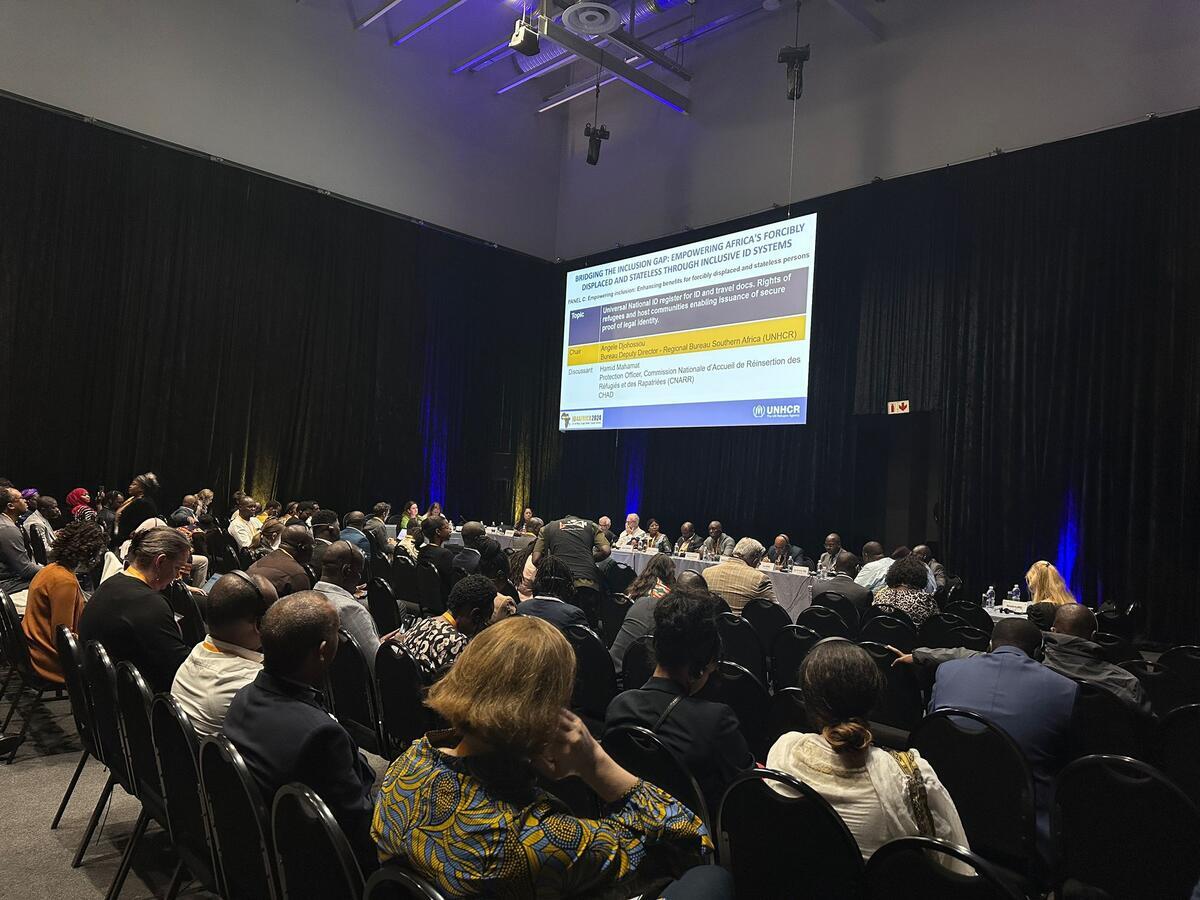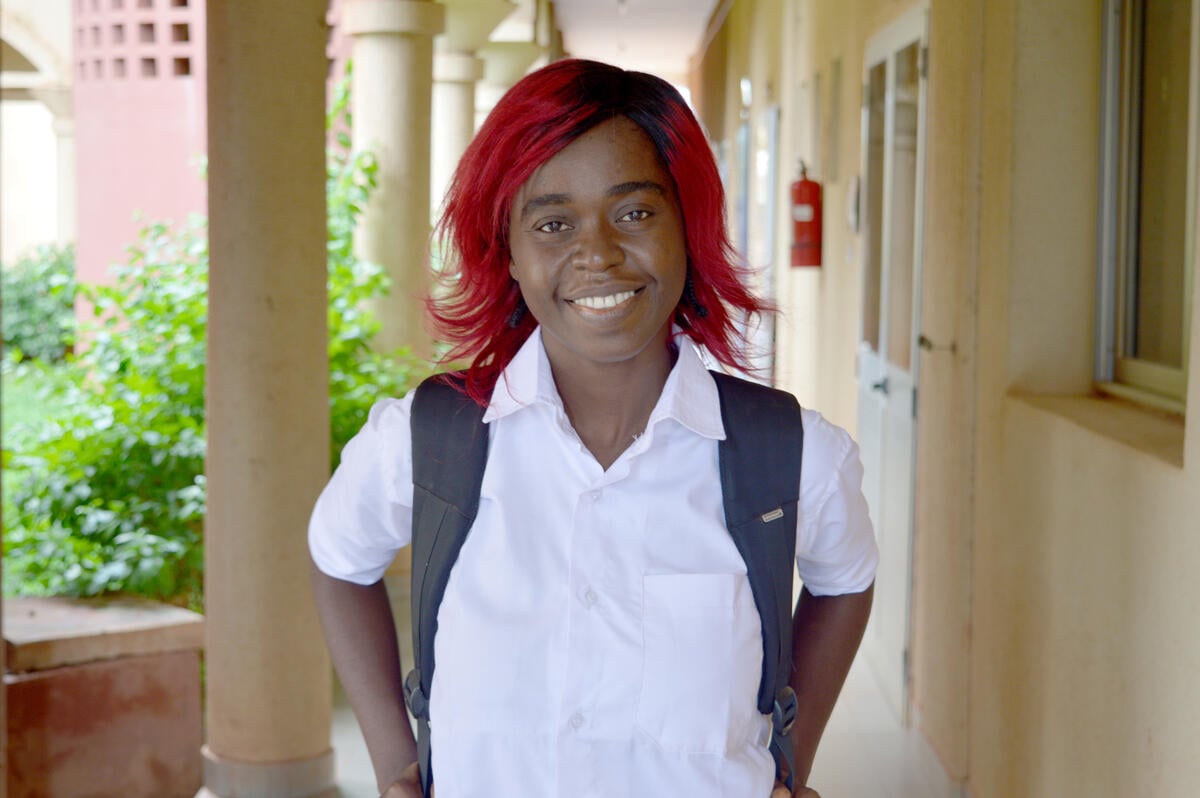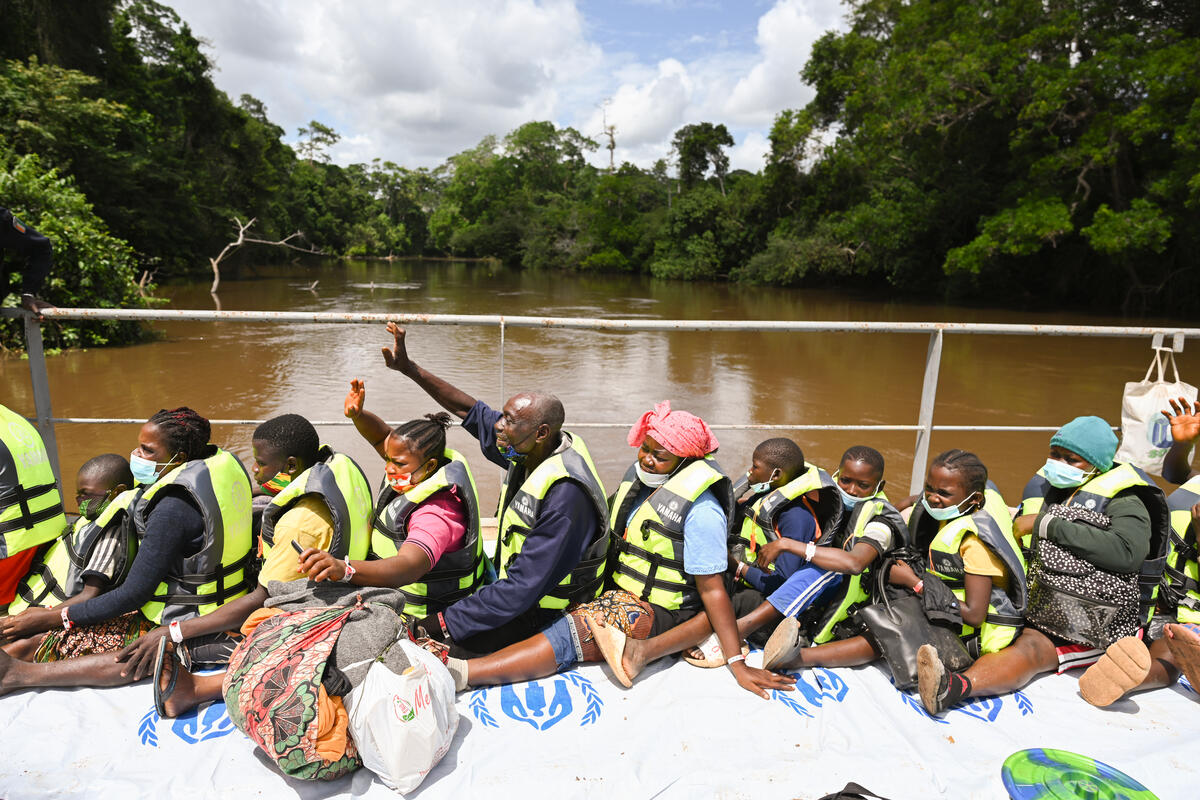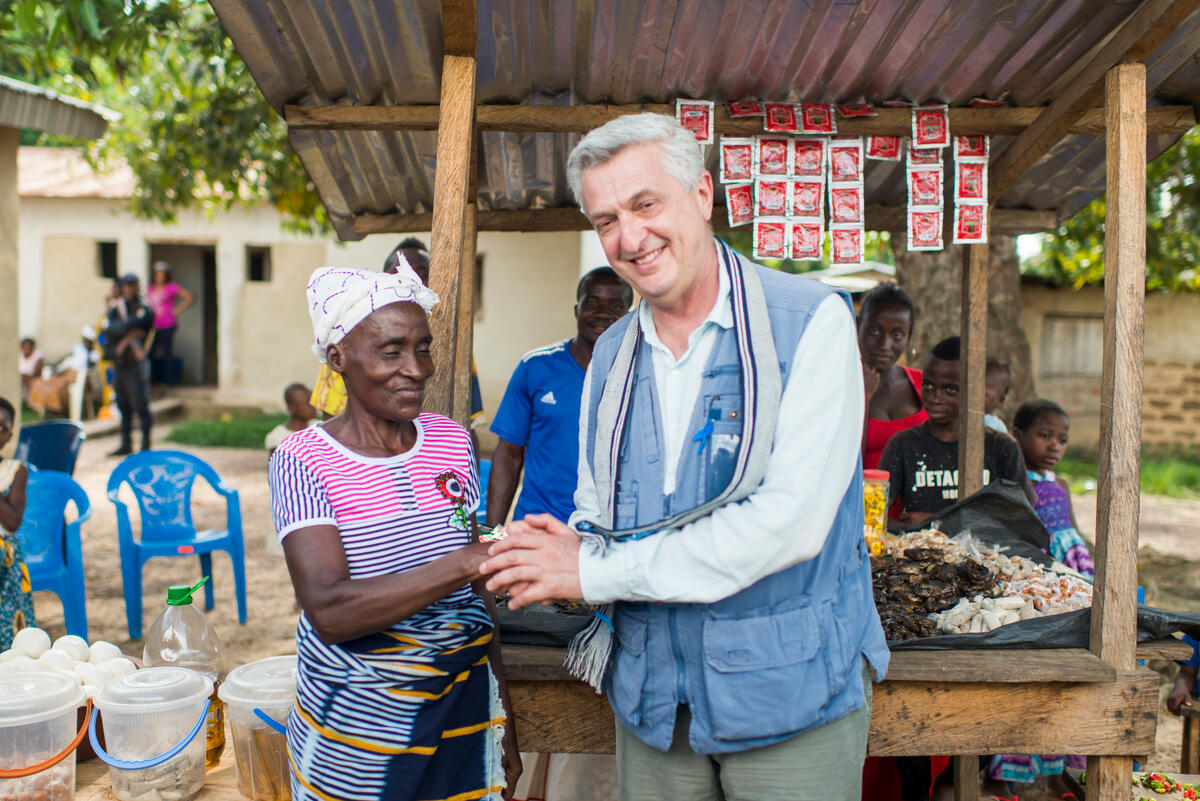Liberia: arrivals from Côte d'Ivoire in last 10 days top 10,000
Liberia: arrivals from Côte d'Ivoire in last 10 days top 10,000
The number of Ivorians fleeing to north-eastern Liberia over the past 10 days is now estimated to have surpassed 10,000, with new arrivals reported daily. While the numbers have been lower the past few days, incoming refugees say that more people are on the way.
Ivorians are arriving in Liberia through at least 12 entry points along a 45-km stretch of relatively remote frontier, often crossing the border river in small canoes. Registration is underway throughout the area. By Sunday, over 5,500 refugees were registered in the small border town of Butuo alone. But UNHCR's monitoring work is being considerably slowed by the very poor state of the roads, many of which are impassable by car. Liberian relief agencies are sending out teams on motorcycles to reach the refugees in the more inaccessible areas.
The majority of the refugees are, for the time being, staying in public buildings or with local people. The situation in and around Butuo is calm. The main problem for both refugees and the local community is a shortage of food. Liberia is itself just coming out of 14 years of civil strife, and this year's harvest was the first since the end of the conflict. Water and sanitation are also critical problems. UNHCR, in cooperation with other UN agencies and the Liberian authorities, distributed emergency aid as soon as the first arrivals were reported. It has now been agreed with WFP and the Liberian authorities that food distribution will target the most vulnerable groups among the host communities as well as the refugees.
The main obstacle to delivery of food and assistance is the poor state of the roads and general lack of infrastructure in the area. UNMIL (United Nations Mission in Liberia) helicopters were used to airlift two consignments of emergency relief items to Butuo on Friday and Saturday. UNHCR has set up a temporary transit centre to shelter refugees arriving in Butuo. Three water hand pumps are working in the city. A community health centre is open to everyone, although there is an acute shortage of medical supplies. Should the situation deteriorate, the refugees will need to be moved from the border area to a location further inside Liberia, possibly to the town of Saclepea, 80 km to the west, where an existing refugee camp could shelter up to 1,500 people. To move the refugees, however, a number of bridges will need to be rebuilt and roads rehabilitated.
The humanitarian dimension of the crisis in Côte d'Ivoire, and its potential impact on Liberia, is of grave concern to UNHCR. The agency is working with other UN agencies and the Liberian authorities to put in place a contingency plan that will meet the needs of the refugees. But we strongly hope that a peaceful resolution of the crisis in Côte d'Ivoire will prevent any further influx of Ivorians into Liberia, and allow refugees to return home rapidly.








